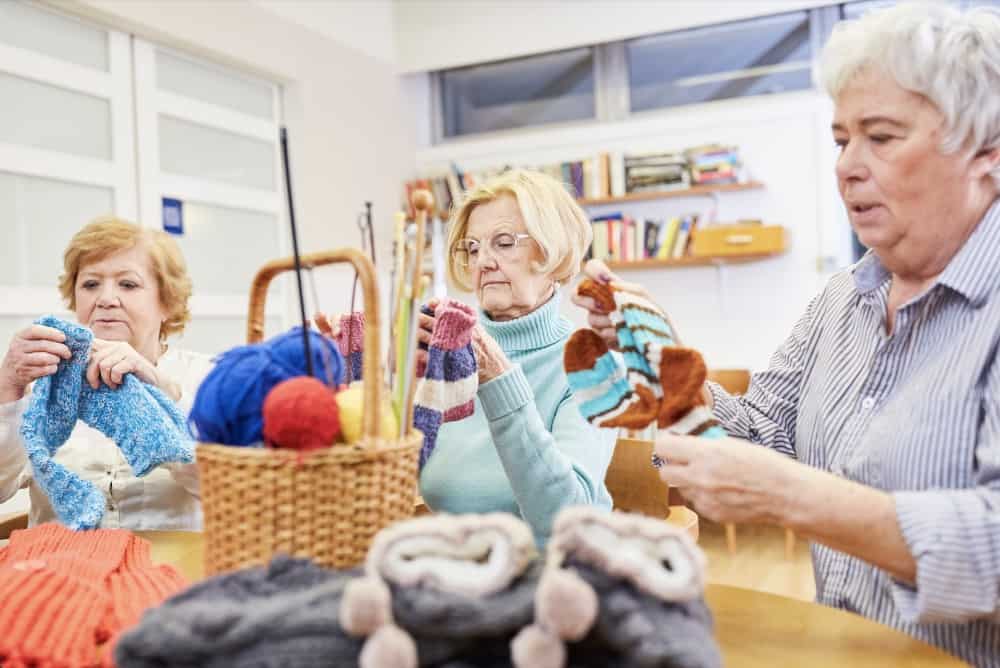Lifestyle Tips to Improve Memory in Old Age
Everyone has had those moments when they can’t remember where they put their phone. Or they just can’t put a name with that face. Occasional memory lapses are a normal part of life. But when memory loss affects a senior’s ability to live independently and their quality of life, it may be time to accept that there may be a serious underlying medical condition.
There are several factors that can increase someone’s Alzheimer’s and dementia risk, such as age and genetics. However, there has been research that shows there are some things that can be done to lower these risks and improve memory function through simple changes in lifestyle.
Causes of Memory Loss
Age is a key factor when it comes to memory loss. Just the normal aging process itself will cause a decline in brain function. Other factors such as smoking, family history, and illnesses such as high blood pressure and obesity will also affect the risk of developing severe memory decline. Of course, conditions such as Alzheimer’s and dementia and progressive conditions that cause severe memory loss over time.
Other causes of memory loss in older adults, which may be temporary, can include adverse reactions to medications, depression, extreme alcohol consumption, and infection.
Normal Memory Loss
Sometimes being forgetful is a normal part of becoming older. Something like forgetting the date or forgetting where they put their car keys are just a part of memory loss that comes with age. However, when memory loss begins to affect someone’s ability to perform their activities of daily living, that’s when it becomes a problem.
Signs of Memory Loss
There are signs of memory problems in elderly adults that are grounds for a trip to the doctor. These include getting lost in familiar places, having trouble following directions, asking the same questions over and over, being confused about people and/or places, and having difficulty following a conversation, to name a few.
Preventing Memory Loss
There are several things that can be done to lower the risk of memory loss. Obviously, age and family history cannot be changed, but there are certain lifestyle changes that can be made that can improve memory or prevent memory loss.
Staying physically active is one of the best things to do to help with memory loss. Exercise is known to help lower the risk of disease such as high blood pressure and heart disease, which are known risk factors for memory disorders. Along the same line, eating a healthy diet is also an important way to reduce the risks of memory loss. Eating a diet that is rich in green vegetables, berries, fish, lean poultry, and whole grains can also lower the risk of diseases that cause cognitive decline.
Staying socially active and engaged is an important way to keep stress levels lowered and prevent depression in seniors, both of which are known contributing factors in memory loss. One way to keep seniors involved in social activities is to encourage them to take up a hobby or join a club. It is also important to keep in mind that senior living communities help keep their residents engaged socially by offering many activities and outings for all different lifestyles and interests.
Smoking cessation and only moderate alcohol consumption are also important for good memory health. Studies have shown that smoking is known to increase the risk for Alheimer’s and dementia, and excessive drinking does the same.
Keeping an active and engaged mind is another way to slow memory loss. Stimulating the mind with activities such as reading, doing crossword puzzles, or playing games will keep the mind active, which may prevent memory loss by amplifying connections between cells in the brain that are known to support memory.
Finally, getting enough sleep is important for brain function. While sleeping, the brain rests and restores. Continual problems with sleep have been associated with an increased risk of cognitive decline and dementia. If there is a sleep issue, it is important to have a discussion with a doctor to learn about strategies that will help improve sleep.
Experience Award-Winning Memory Care With Regency At Augusta
Regency Senior Living is committed to meeting the needs of our residents with memory-related concerns like Alzheimer’s and dementia with our advanced Innovations Memory Care Program. Each resident is unique, and this program is built upon respecting the individuality and independence our residents can still enjoy.
All members of our Innovations Memory Care Team participate in ongoing education for memory-related conditions, allowing for a consistent and specialized level of quality care that embraces the differences in our residents. The Innovations Memory Care Program includes recommendations from a resident’s physician, as well as counsel and direction from our Innovations Care Coordinator, direct-care staff, and residents and their families.


 Schedule a Tour Today!
Schedule a Tour Today!



